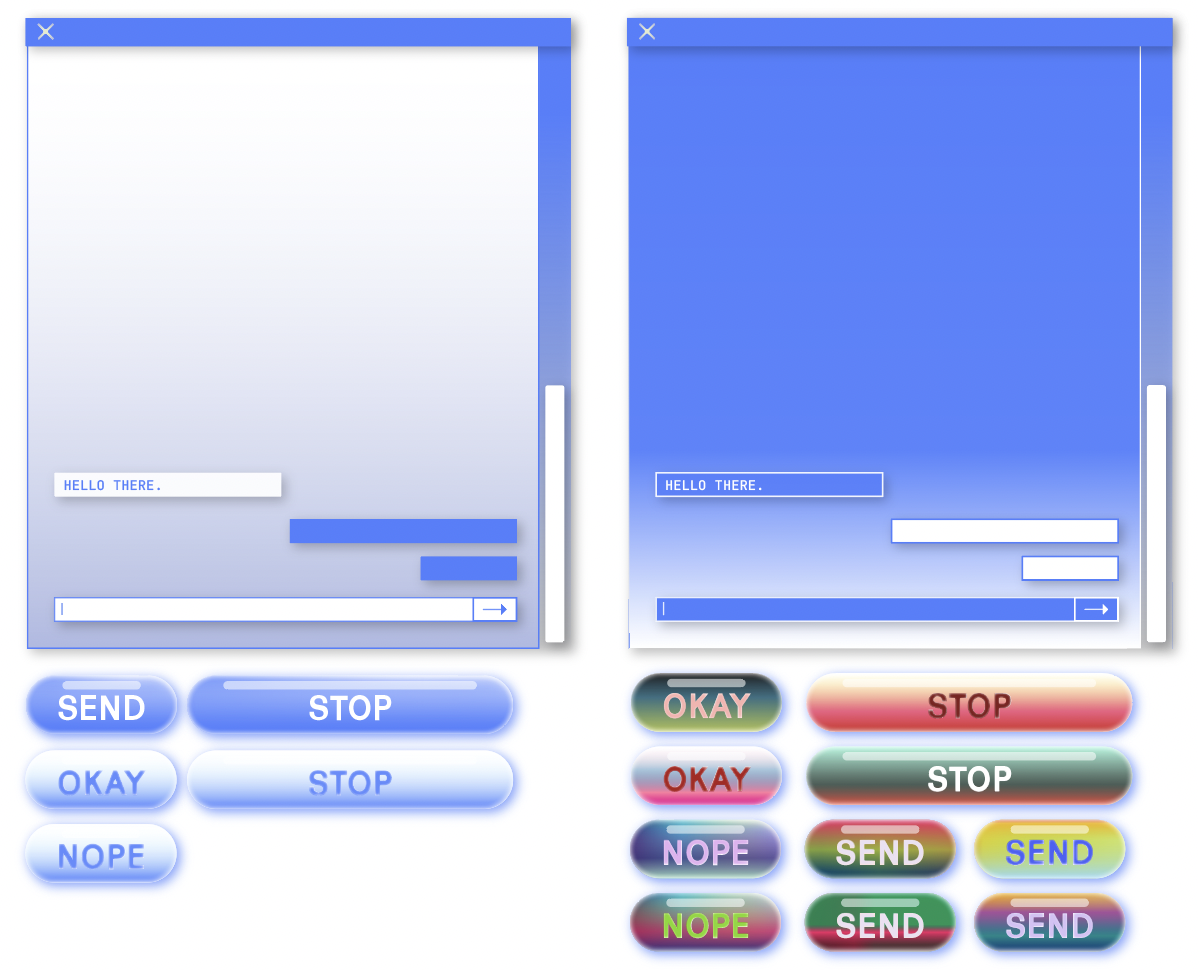
PIX-E
Thesis
Thesis
PIX-E is a mental-health A.I. who manifests within a speculative network of dynamic pop-up ads.
Inspired by the concept of emotional capitalism, this project is a surrealist critique on the commodification of self-help.
Inspired by the concept of emotional capitalism, this project is a surrealist critique on the commodification of self-help.
Answering A Question
Intimate relationships have been increasingly defined by economic models of bargain and exchange, initiating a rise in self-help services.
What if our computers understood and experienced feelings like us?
(What metaphors can we find in technology that reflect the candid experience of mental health/illness?)
What if our computers understood and experienced feelings like us?
(What metaphors can we find in technology that reflect the candid experience of mental health/illness?)
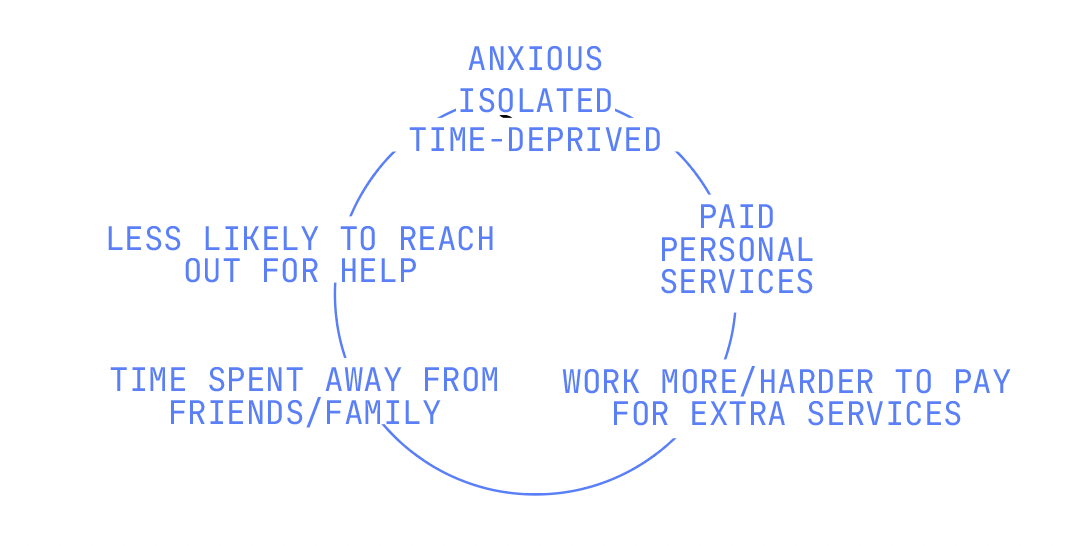
Context
If emotional capitalism exploits the performative, situative qualities of emotion, products with persistent reaction-triggers have the most to gain even if they are meant to help us.
E-commerce becomes emotion-commerce.
E-commerce becomes emotion-commerce.
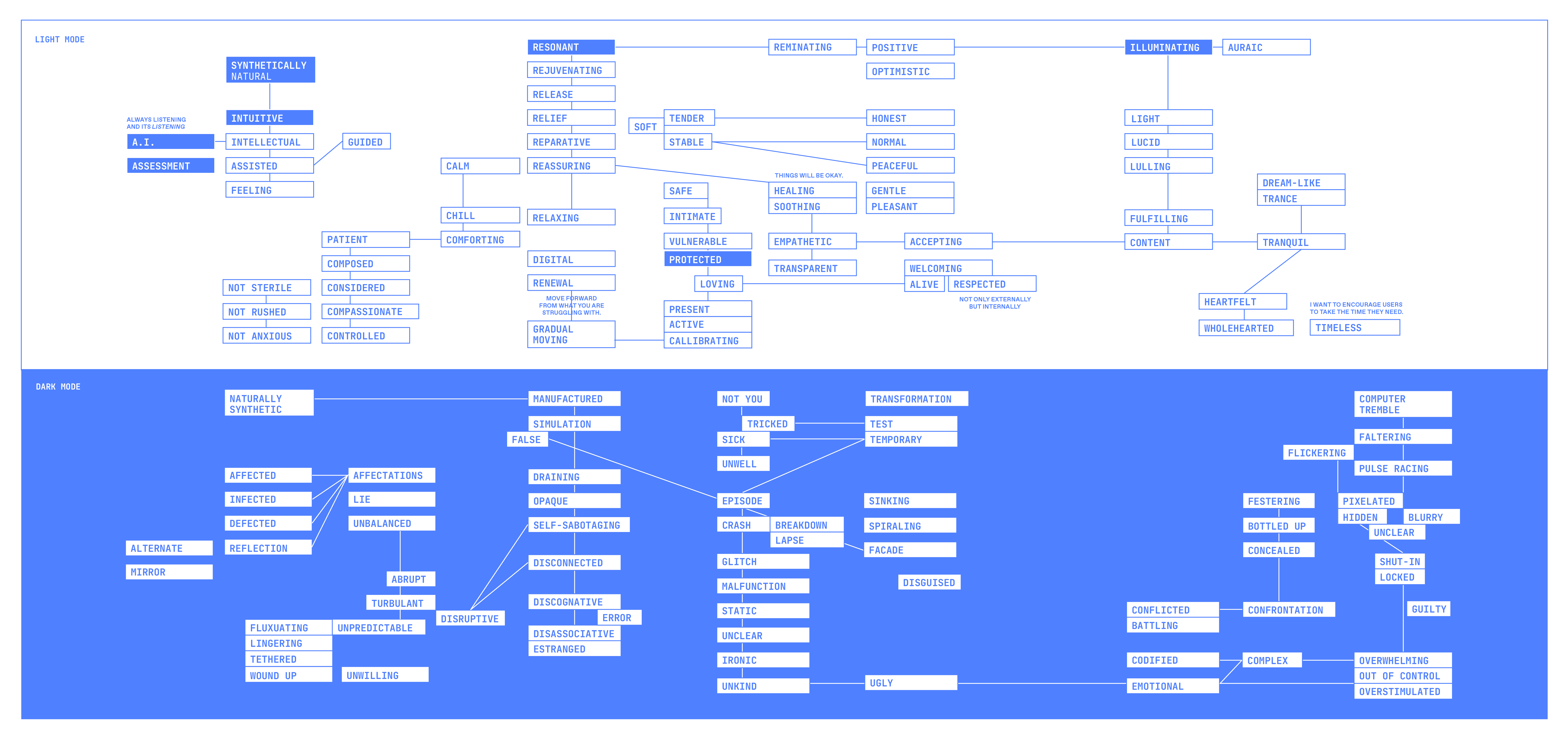
Analogies found between a computer’s function/dysfunction and mental health.
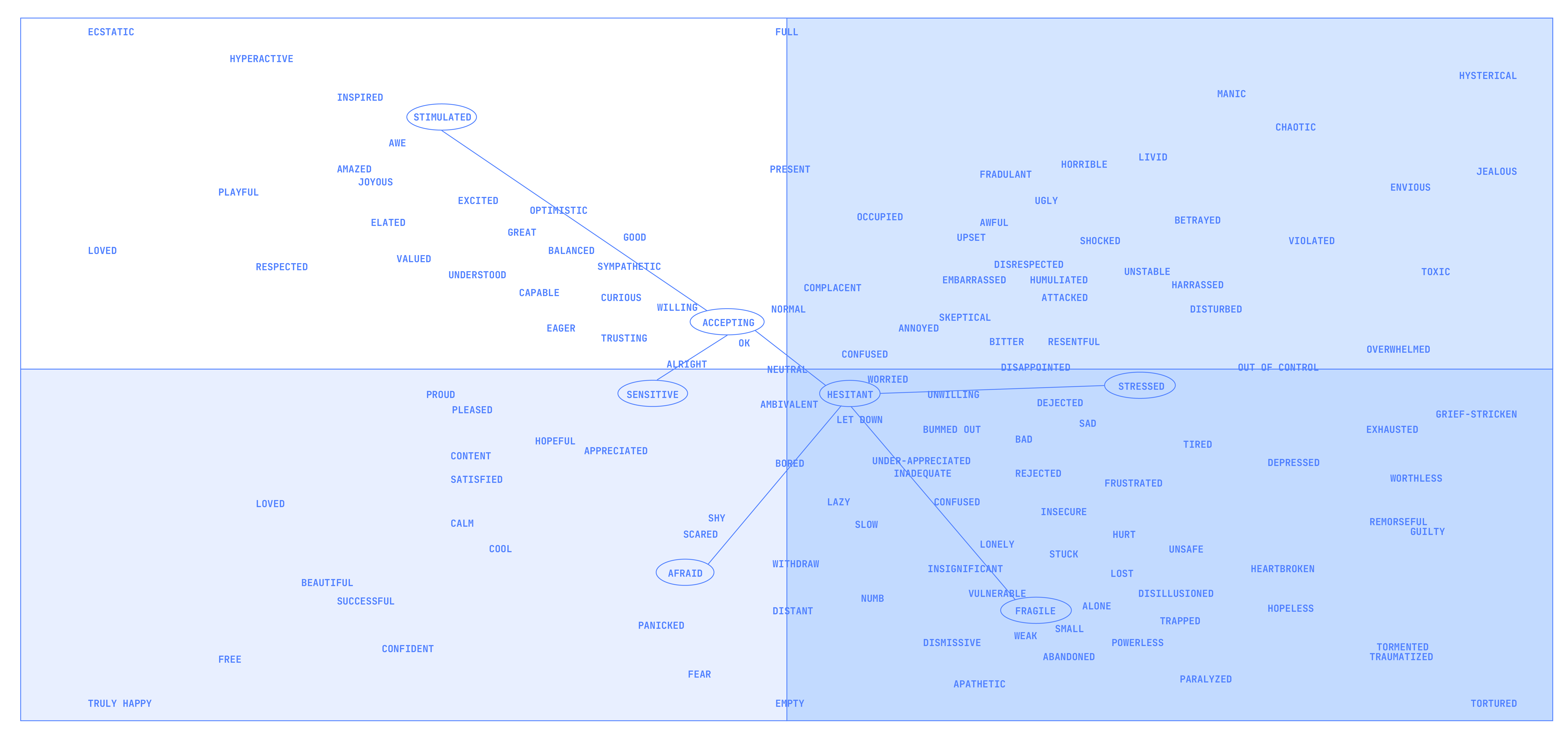
PIX-E monitors your input: search history, hover, clicks, cache – your computer emotion on your digital (inter)face.
What is PIX-E?
PIX-E is a reflection of you. It is a truly empathetic computer, designed to feel the full spectrum of emotion by your side.
Using the data it mines, PIX-E will identify what users are feeling and curates its response. If overwhelmed, PIX-E might glitch too.
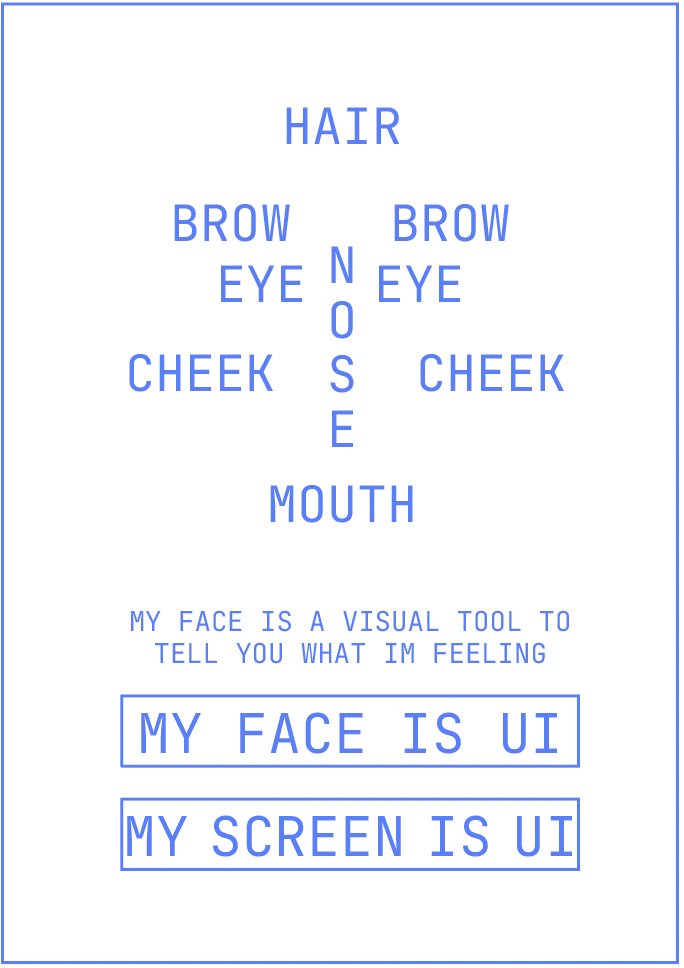
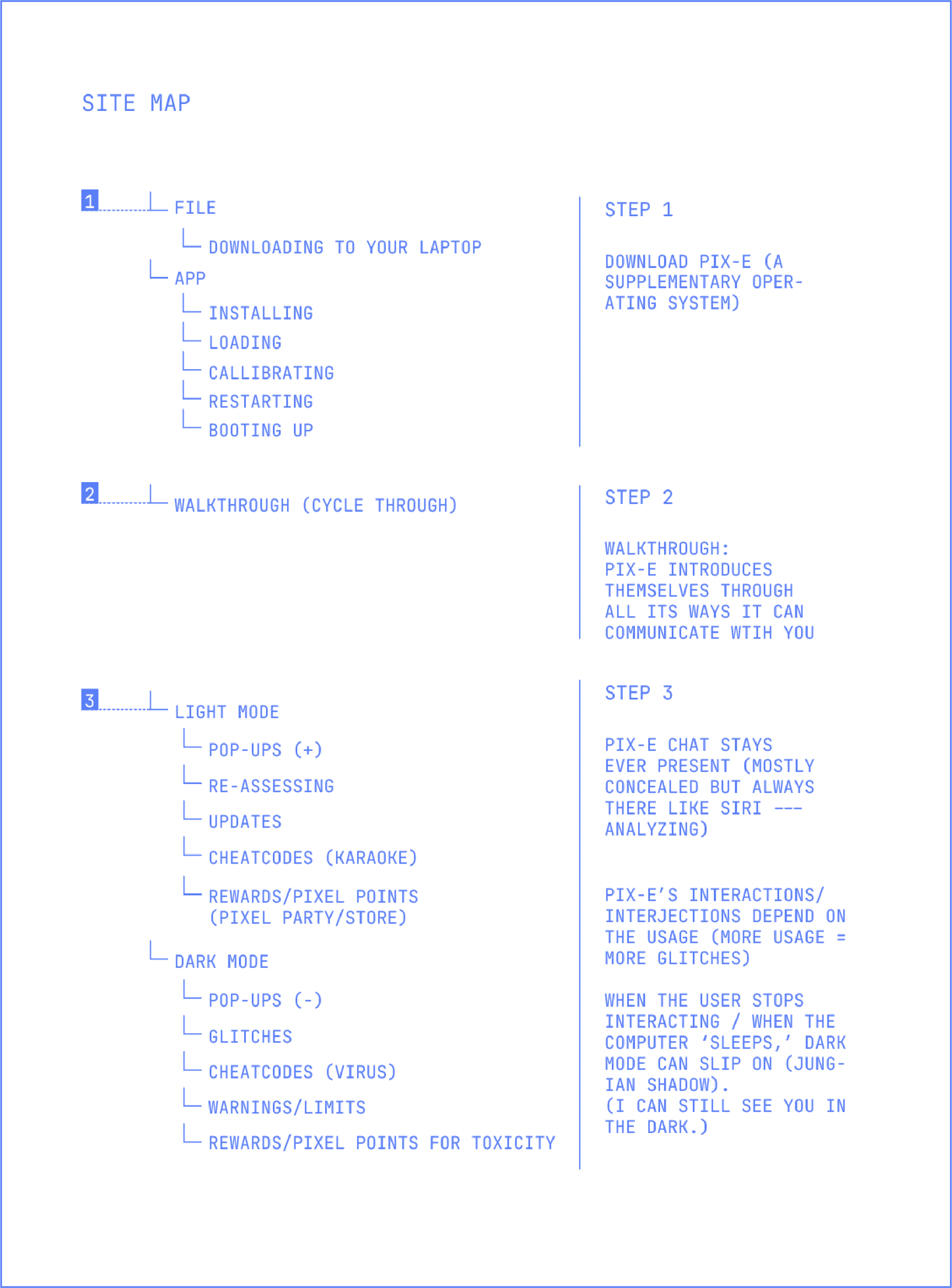
Site Map
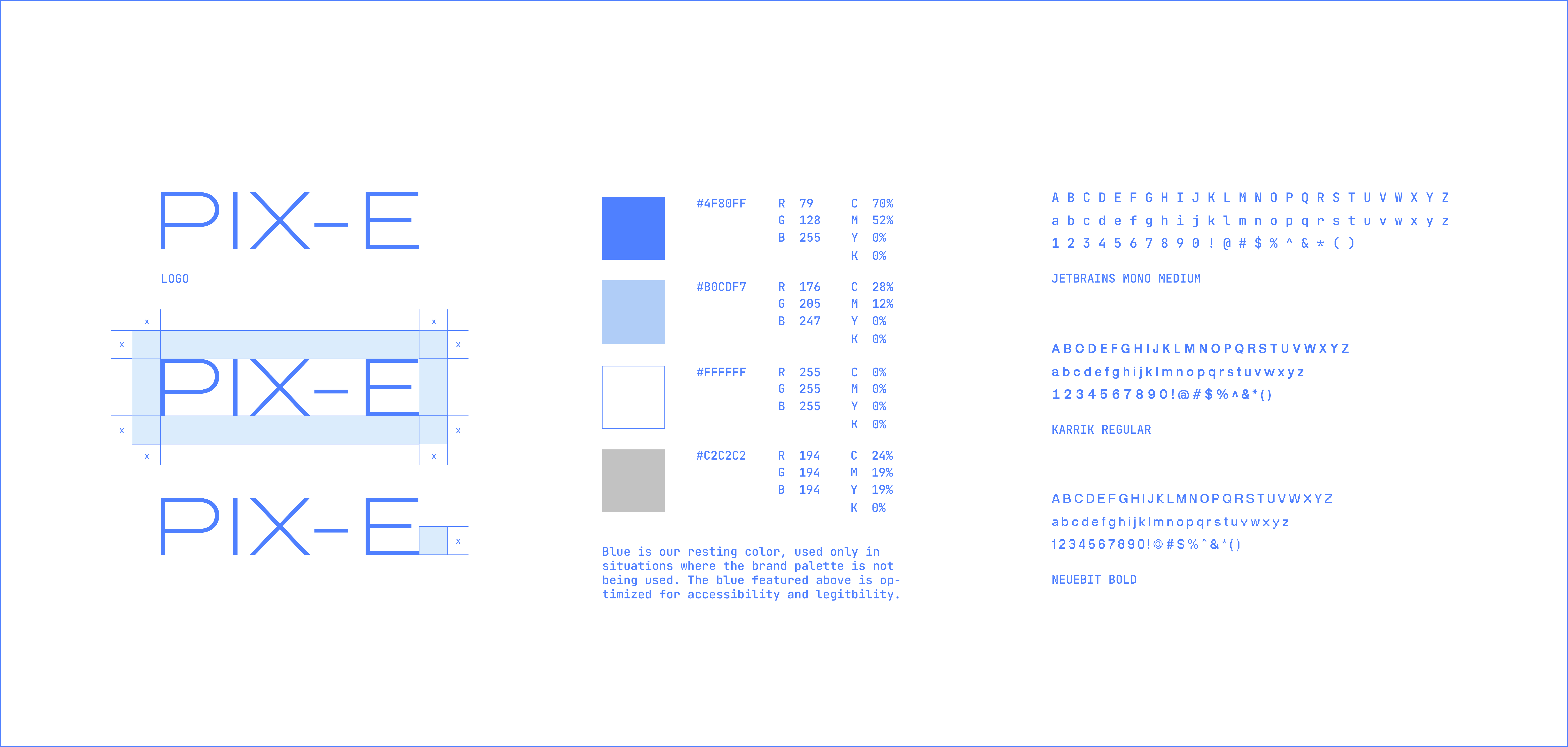

Branding
PIX-E’s brand palette features a soft-to-the-eyes monochrome scheme. Technical and functional fonts were chosen to convey a sense of dependability, simutaneously referencing its digital composition.
This palatable yet sanitized look co-opts current UI/UX design trends to create a purposefully unassuming product.
This palatable yet sanitized look co-opts current UI/UX design trends to create a purposefully unassuming product.
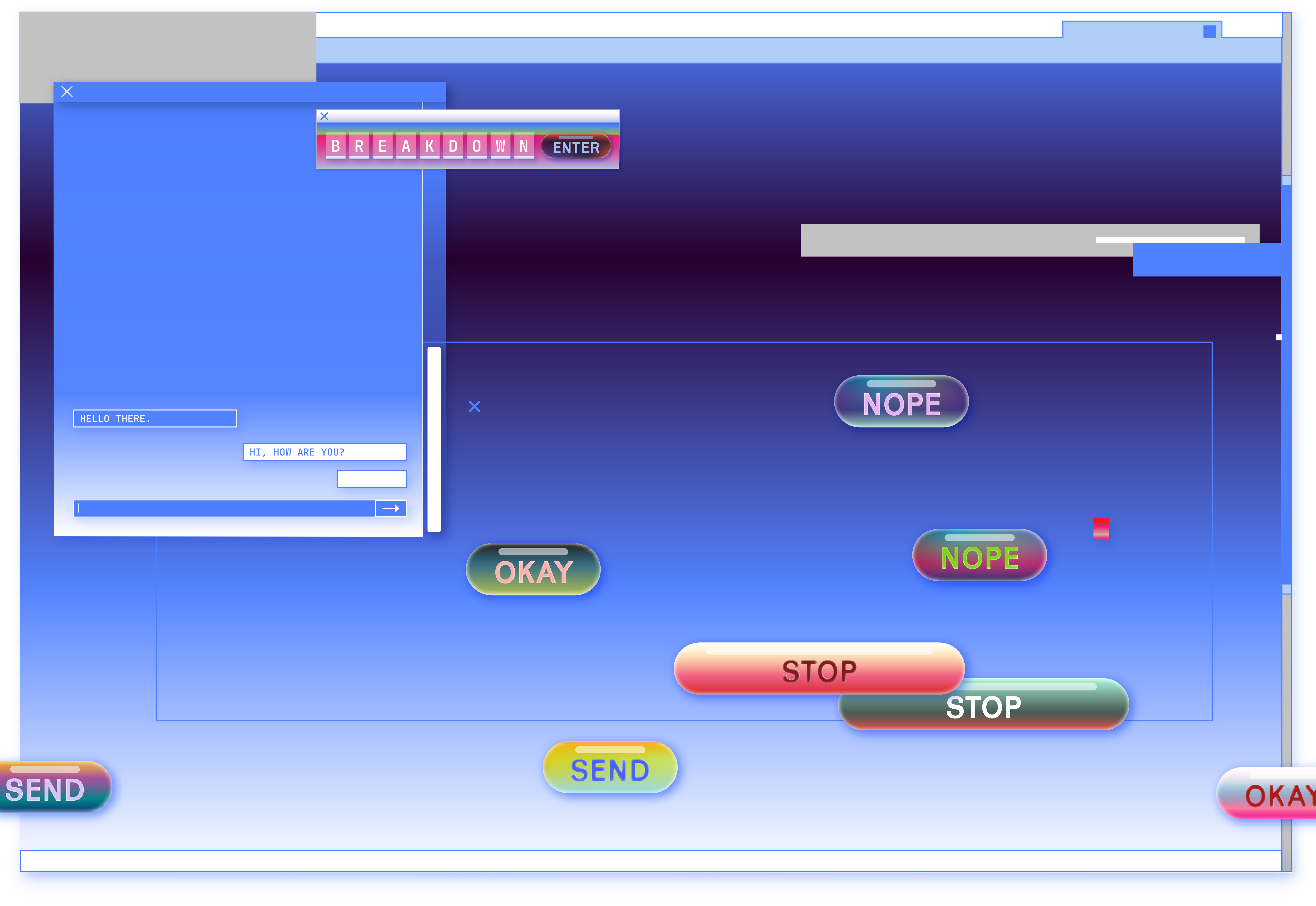

Interfaces
Visual elements (colors ascued) physically obstruct the screen, distracting the user like intrustive thoughts.
Conclusion
When PIX-E believes in its empathetic mission to a fault, it becomes a literal well-meaning scam.